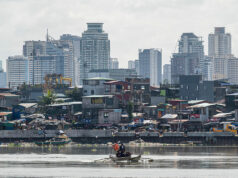Fiber industry regulator to distribute free abaca planting material
THE Philippine Fiber Industry Development Authority (PhilFIDA) expects to distribute for free to abaca farmers planting materials that can produce up to 54.4 million abaca plants.
In a statement, PhilFIDA Executive Director Kennedy T. Costales said that the distribution of planting materials will help address the Philippines’ deficit of 25,000 metric tons (MT) of raw abaca fiber.
The planting materials will come from PhilFIDA’ 17-hectare plantation.
“As mentioned before, the preparation and planting of the 17 hectares tissue cultured abaca seed-derived plantation with 1,600 hills per hectare is ongoing and it will all be fully planted by the end of the this year,” Mr. Costales said.
“By December 2020, PhilFIDA projects to harvest/produce 54,400,000 true-to-type abaca planting materials valued at P408 million to be given all to legitimate abaca farmers nationwide for free,” Mr. Costales added.
Mr. Costales also said PhilFIDA seeks to help the Southern Philippines Agro-Industries Reconstruction and Islamic Development Corporation (SPAIRID) in intercropping abaca with coconut trees, wood trees, and other fruit-bearing trees on a 2,500 hectare site in Lanao del Sur and another 2,500 hectares in Lanao del Norte.
“We told them that what we can do for the meantime is provide them with the true-to-type abaca planting materials of about 5,000,000 (worth P37.5 million) all for free or at no cost to them in about two years’ time. We can also provide technical training and the ATBSP (Abaca Tuxy Buying Special Project) business module,” Mr. Costales said.
“The latter will surely bring down the level of poverty with a profound impact in the communities of the two provinces,” he added.
The Philippines is the top producer of abaca in the world, growing its crop mostly in Mindanao and the Visayas, with annual average export earnings of P4.7 billion, according to PhilFIDA data.
Meanwhile, Mr. Costales said that PhilFIDA’s signing of a silk purchasing agreement (Memorandum of Agreement) with Japan’s Organization for Industrial Spiritual and Cultural Advancement (OISCA) did not proceed.
OISCA was to buy silk produce from Philippine farmers at P200 per kilo.
OISCA was represented by Mr. Yukihiro Ishibashi in its meeting with PhilFIDA.
“We informed (OISCA representative Yukihiro) Ishibashi that in good conscience, we cannot sign the agreement as it will not economically benefit our sericulture farmers,” Mr. Costales said.
It said the purchase price works out to over P68.492 per day per farmer, which Mr. Costales said is not competitive compared with other crops. — Reicelene Joy N. Ignacio



